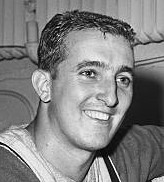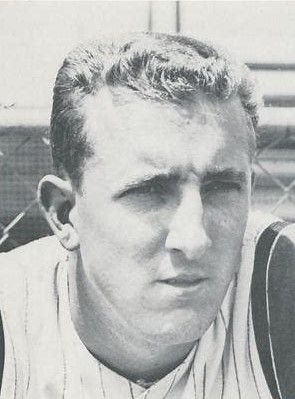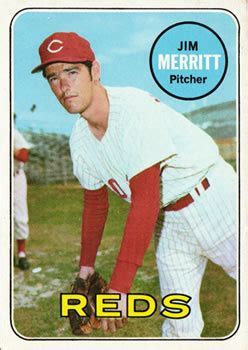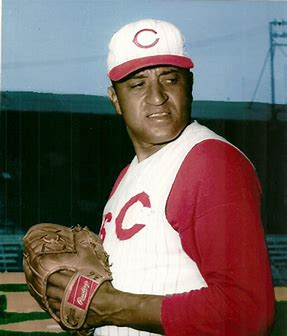Jim Maloney was one of baseball’s best pitchers during the 1960s: no-hitters, All-Star  games, a World Series. He won more than 20 games in a season twice, with a blazing fastball leading the way. The Fresno, California native seemed to have it all: baseball fame, a handsome salary, a nice house, and a wonderful family. [Part 1 of our interview is here.]
games, a World Series. He won more than 20 games in a season twice, with a blazing fastball leading the way. The Fresno, California native seemed to have it all: baseball fame, a handsome salary, a nice house, and a wonderful family. [Part 1 of our interview is here.]
Life after baseball was not nearly so kind to Jim Maloney. He struggled to adjust to civilian life, and the more he struggled, the more he drank — until he became a full-blown alcoholic and his life fell apart.
But with the help of friends, Jim made his most-important decision. It saved his life, and now his days are full and rich — and alcohol-free.
This is his story.
Getting back to civilian life in Fresno was a difficult adjustment?
I had a really rough time getting back into the real world. Adjusting to the real world. It was just all downhill for me. I got into alcohol, and I just couldn’t stop drinking; I was an alcoholic.
What happened?
I had a nice home and a wonderful wife and family, three kids — my son was just born. I started drinking, and I didn’t like what was going on. I was going to take over my dad’s automobile business, and I didn’t like the business. So I wanted to get back into baseball, after being out for a few years.
Then you contacted the Giants.
Fresno had a Class C team – a Giants minor-league team. I got invited to an Old-Timers game in Candlestick, and I went up there. We were all milling around on the field, and I see [Giants owner] Bob Lurie, so I introduced myself. I said, ‘I live in Fresno, and I’ve been out of baseball for 7-8 years. I’m looking to get back into the game. I’m willing to start at the bottom and work my way up.’
So he says, ‘that’s good. I’ll have [GM] Spec Richardson get hold of you.’
I went home, and a couple days later, Spec calls and he says, ‘we’re going to change our program around. We’re going to start having some more coaches with our minor-league teams.’ And he said, ‘we’d like to have you be a pitching coach in Fresno.’ A guy named Wayne Cato was the manager. ‘Would you be interested?’ And I said, ‘I certainly would.’
So I signed on with the Giants.
BACK IN THE GAME
Right away, they sent me to Instructional League for their high-end younger players, to work with the pitchers. I hadn’t been a pitching coach, or know what all the rules were, but I went over there, and they said, ‘we’ll teach you what’s going on.’ A guy named Jack Mull was the manager. Hank Sauer was working with the hitters, and I was the pitching coach. So that went through, and I got ready for the thing in Fresno.
But you were only pitching coach at Fresno for one season.
I had started drinking by that time, and I was drinking more. The first year being a pitching coach, they had a guy named Bob Fontaine, head of the farm system, and he called me up and said, ‘hey, they fired Wayne Cato, and we’re looking for a manager.’ And I said, ‘if you can’t find a manager, I’ll put my hat in the ring. I’d like to give it a shot.’
He called me back the next day and said, ‘you’re the manager of the Fresno club.’
So I started managing that Fresno club, and my assistant was Bill Lachemann. I’d come down there to the ballpark, and I’d be half in the bag, and go out there and try to teach these kids how to get to the next level. I was in no shape to teach anybody.
I’d go out there and try to run the ballclub from third base – gosh, it was terrible.
One night I got so sick during the game, I just threw up in the third-base coaching box. And there’s people in the stands — in the old Fresno ballpark, they were close to the field – and it was terrible.
And it only got worse after that?
I stumbled around for three or four more years, and then I got fired. They brought me to Scottsdale and fired me, because I was a drunk. They didn’t tell me that, but I knew.
So I stumbled around, and my wife asked me to leave the house, and I ended up living with this guy I hunted and fished with.
I was sleeping in a sleeping bag, in a room with no furniture — that’s where Jim Maloney ended up.
GETTING HELP
But you eventually came out the other side of that?
I got a phone call from [former Reds pitcher] Jim Merritt. He was down in LA. He said, ‘I hear you are having a rough time.’ I guess word gets around. And I was sitting there drinking some vodka at the time he called.
drinking some vodka at the time he called.
And he said, ‘you know what? I haven’t had a drink in six years.’ And I didn’t believe him, because Merritt really had a serious problem when he was playing. I mean a serious, serious problem.
His nickname was O.C., for Occasional Cocktail?
Right. I used to say I was never going to be like that. You say those things, and then you end up actually worse. That’s where alcohol will take you, if you want to go that route.
But he did help you?
He said, ‘do you want to get some help? I can have this guy call you who works for the Dodgers, and let him talk to you. He’s the medical director for Unocal.’ [Union Oil Company of California; now part of Chevron.]
So I said OK, and I no sooner hung up than this guy called and said,
‘I’m John Newton, and I work the Unocal Employee Assistance Program in their medical department. I’m a recovering alcoholic. Jim Merritt just called me, and he said that you need some help. We just sent [former Dodger] Kenny Landreaux to this place over in Arizona to get help, and he’s doing real fine. You can do the same thing.’
And I’m thinking to myself, ‘what’s this all about? Do I really want to get involved in this?’
So he said, ‘hey, here’s a guy who wants to talk to you. He’s sitting here, right in my office.’
And I’m thinking, ‘who in the world could this be?’
The guy gets on the phone, and he says, ‘hey, you dumbass! What are you trying to do, kill yourself?’
And I’m thinking, ‘who in the world is this?’

And it was [former MLB pitcher] Don Newcombe. Don lockered next to me when I first
came to the big leagues, in spring training. He was at the end of his career, and Cincinnati picked him up.
He couldn’t get on an airplane without getting drunk in those days.
Newcombe says, ‘you can get some help. I haven’t had a drink in ten years, and I work for the Dodgers – I work in their chemical-dependency program. It’s the only way to go.’
So I said OK, and Newton came back on the phone and said, ‘I’m going to call this place in Arizona, and they’ll get hold of you. Just do what they say to do, and we’ll be in touch.’ I said OK, and he hung up. And I thought, ‘ah, what’s this deal?’
You found out quickly what ‘the deal’ was.
The phone rings, and it’s this gal from a place called The Meadows. It’s a rehab center in Arizona, north of Phoenix. And she says, “we have a bed for you, and we want you to come over here. We want you on a plane this afternoon, and we’ll have a guy pick you up at the Phoenix airport and drive you out here.’
A MOMENT OF CLARITY
So, being an alcoholic – and at that time I didn’t know, but later on I became an alcohol-and-drug counselor, and did that for many years – the major symptom of alcoholism is denial. And to show you how much denial I was in about my drinking, like the good alcoholic I was — well, I still am — but at that time, you know what I said?
No. What?
‘Let me have a week to think about it.’
And she said, ‘I don’t know who you are, but somebody pulled some strings and got you a bed over here. We’re completely full, and there’s a waiting list.’
And so at that time, I had a moment of clarity.
I made a lot of good decisions in my life — the right pitches against Mays and McCovey and those guys, and got them out – but the best choice I ever made in my life was to get on that plane and go to The Meadows.
That was February 5, 1985, and I haven’t had a drink since. Thirty-three years.
That probably saved your life, it sounds like.
Absolutely! Alcoholism is a terminal disease.
How did things go in Arizona?
When I got over there, I was in Stage 3 of alcoholism. I was 42 days in that treatment program. And I came back to Fresno, and I didn’t know what I was going to do.
I tried selling cars for a while. The guys would come to work, and I could smell them. They were on alcohol, or they were talking about doing cocaine — which I never did, but a drug is a drug. I was trying to stay sober and go to AA [Alcoholics Anonymous] meetings, so I quit [selling cars].
A NEW FOCUS
But then your life changed direction again?
God has mysterious ways of showing up in your life. I took my car down to get a car wash, and I knew the owner. There had already been some stuff about me in the Fresno Bee – that I had gone away to get rehab, and that kind of stuff – and he comes over and he says, ‘how are you doing?’ and I said, ‘I’m doing OK. One day at a time.’ He said, ‘I know. I’m a recovering alcoholic. You’d make a good drug-and-alcohol counselor.’
I said, ‘man, I haven’t had any schooling on that.’
He said, ‘I’m the president of our board of the Alcoholism and Drug Abuse Council of Fresno. We’ll send you to school. Just go down there and talk to the Executive Director, Debbie Duncan.’
So I went down there, and Debbie said, ‘we’ll offer you a job. Do you want to work eight hours, or part-time at four hours?’ I thought about it and said, ‘you know what? I don’t think I could handle eight hours.’ That’s how bad I was. ‘Let me try part-time.’
You got back into coaching, too.
At that time, my son was a freshman in high school, and I knew the head coach there – we went to school together at Cal – and he wanted me to coach the freshman team, so that worked out fine. In the mornings I did my counseling and stuff, and in the afternoons I worked with the kids.
But as it went along, I went to a full-time job. They sent me to the University of Utah for drug-and-alcohol counseling, and I had family-intervention training; so I learned an awful lot, and then I became the director of this place [the Alcoholism and Drug Abuse Council of Fresno].
Then at 52 years old, I was going to retire, and one of my board members was pastor of one of the largest churches in Fresno, and I was going to that church. He said, ‘I need a guy on campus. I want you to come on out there.’
I said, ‘I’m involved with the Major League Alumni,’ and he said, ‘I don’t care what you’re involved with; I’ll get my money’s worth out of you.’
So I said, ‘I’ll try it for a year.’ I ended up working there for 10 years. It was very rewarding. We helped a lot of people.
Then when I was 62, I retired.
Was that work as rewarding as pitching?
I would say so.
I knew that if I kept going the way I was, I would find myself six feet under the ground.
The big thing that was rewarding was I knew that if I kept going the way I was, I would find myself six feet under the ground. You start in things and see people in recovery who have gone through stuff like you have, and it inspires you to look into this. I learned an awful lot in that treatment program. I came back to Fresno and I went to 90 [AA] meetings in 90 days.
I still go to AA meetings today; I go to two meetings a week. It’s not so much that I’m going to drink, but a big thing about AA is helping the next guy coming through the door. That’s what that is.
That’s a support thing.
Absolutely! A wonderful program. I had no clue what it was like when I started, but you learn about it in the treatment program. They get you plugged into AA to start with, and you have your therapy groups – a couple of them a day – and you learn about different things.
The baffling, powerful thing about thing about alcoholism and drug addiction is, some people just don’t make it. They just don’t make it.
But you had the strength to get through it. And some good support.
I did.
What happened was, I really went over to The Meadows to save my marriage; my wife had asked me for a divorce. So I figured if I went over there and got straightened around, and came back to Fresno, I could patch my marriage back up, where it would be fine. I had been married for 21 or 22 years. And so I went over there basically to save my marriage.
[Rehab] did not save my marriage; it saved my life.
But what it did – it did not save my marriage; it saved my life. And I will forever be grateful that I made that decision.
It’s been a ride that has just been unbelievable – how alcoholism destroys a family, it’s just unbelievable how someone who is an alcoholic can – coworkers, anybody that’s around, alcohol would just …
There are people who can drink alcohol and don’t have a problem; more power to them.
But it isn’t Jim Maloney, that’s for sure.
LIFE IS GOOD
You’ve had quite a journey. You’ve been up; you’ve been down. But you persevered. How is life for Jim Maloney now?
Ever since I had my last drink, it’s been going uphill. I have more fun, and I do more things.
I married Lyn, my high-school sweetheart. When I signed to play pro ball, I moved on, and she moved on. She married another person and lived in LA; never had any contact with her. I went to my 40th high school reunion, and she was there, and we danced a couple dances, and we went together for two years, and got married in 2000. All of our families get along together, and we do a lot of stuff.
We’re still able to travel a little bit, and our health is fine today. We don’t know about tomorrow, but we’re very grateful for that.
And I’ve been able to do all this stuff without having a glass of alcohol. I used to think, ’where’s all the fun going to be?’ if I wasn’t going to be able to drink. That’s so way out there, it’s pathetic. The last five years I drank, I wasn’t having any fun, even though I thought I was.
You didn’t know what fun was, until you got on the other side of it?
Exactly.
Thanks to Jim Maloney for sharing his story. Part 1 of our interview is here.
